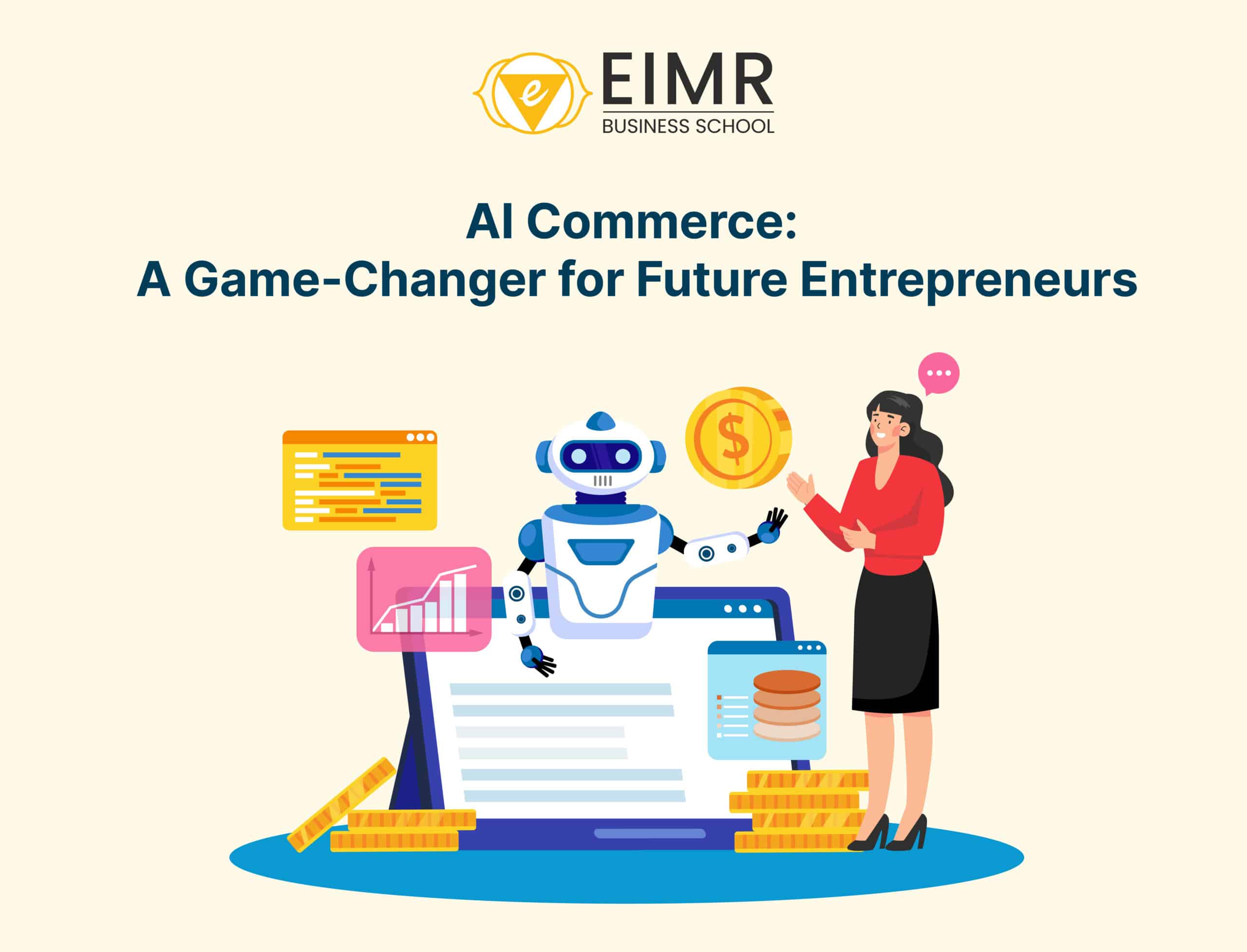Imagine a business that understands what customers want before they tell you. It sounds like a dream, but it’s not anymore. It happens with AI commerce. AI commerce is revolutionizing the operation of businesses from automated inventory management to personalized shopping experiences.
AI innovations are worth investing in now, whether building internal applications or transforming customer experiences, as they prepare your tech stack for what is coming. Worldwide, around 78% of companies are already using AI technologies in at least one of their business functions. In e-commerce, about 50% of businesses have fully adopted AI for operations.
What Does AI Commerce Mean?
Using smart systems to make business easier and more efficient is what AI commerce is about. It helps companies to understand what customers want by analyzing the data and patterns. Think, instead of guessing when to run a sale, what products will sell soon? A business that uses AI commerce already knows the answers.
Using the AI insights, entrepreneurs can predict seasonal demand, optimize price strategies, and launch ad campaigns to reach the right audience at the right time. It even allows small startups to compete on a global scale.
It studies customer behavior, keeps track of the stock, adjusts prices, and even helps in creating better marketing plans, automatically. Entrepreneurs can make decisions faster and smarter and also can manage their time and resources better, as it combines technology and business insights.
AI commerce matters, as it helps you to work smarter, not harder. It gives tools to compete with big players and deliver better results to entrepreneurs without considering the size of their businesses.
How does AI Commerce Transform Entrepreneurs?
In the past, entrepreneurs were about experience and instincts. But today, they are all about tech-driven thinkers. Here is how AI commerce helps entrepreneurs.
A 26-year-old entrepreneur in Mumbai, named Sarah, started her own skincare brand on Shopify. In the beginning, she struggled a lot to manage inventory control, customer queries, and marketing. Then she planned to add AI to it when she integrated chatbots, predictive analytics, and automated marketing; her business took off.
The sales trends were analyzed by the AI systems, and they automatically alert her when the products need to be restocked, and the chatbots handle hundreds of customer queries every day. Within a few months, Sarah got a 40% profit with repeat customers and a reduction in the waste of stock.
AI commerce makes a big difference for entrepreneurs by enabling their small and mid-sized businesses to compete with big brands. Entrepreneurs can focus on creativity, innovation, and building authentic relationships with customers by automating repetitive tasks.
Why Does AI Commerce Matter?
Understanding AI commerce is as important as knowing finance and marketing, as the industry evolves continuously. The future entrepreneurs will thrive at the intersection of technology and creativity.
AI can study and manage a huge amount of data and find useful data that people might miss. This helps entrepreneurs to make better, faster decisions.
It helps entrepreneurs by recommending the right products and customized messages to customers.
Automation of tasks helps entrepreneurs by not spending extra time or hiring a large team.
In today’s world, technology, creativity, and business are connected with each other. Learning the use of AI tools is important for entrepreneurs to succeed. This is very important for the students who are interested in commerce entrepreneurship.
EIMR, an entrepreneurship college in Bangalore, offers a commerce entrepreneurship program for students who are interested in starting their own firms. This program gives hands-on exposure to the latest tools that shape the modern world. This not only prepares them for starting a firm but also enables them to adapt in a rapidly growing environment.
As AI is becoming the backbone of modern businesses, EIMR ensures that every graduate is ready to lead, innovate, and build the business of the future.







